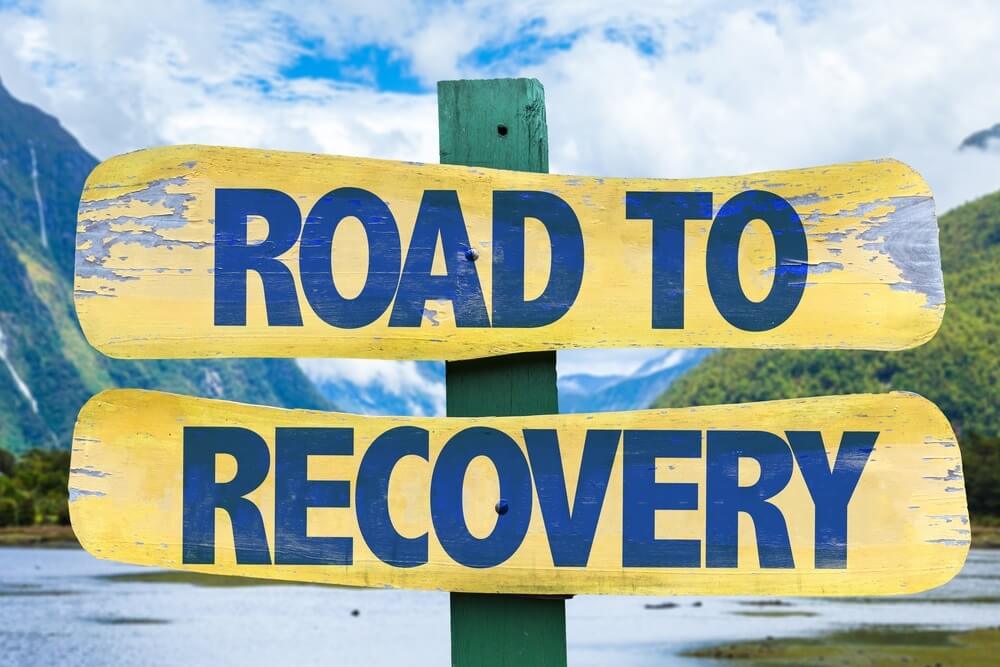The 12 Steps of Recovery Programs
The famous 12 Steps were established by the founders of Alcoholics Anonymous to formulate guidelines for designing the best way to overcome alcohol addiction. The program gained significant popularity in its initial years and was adopted by several other addiction support groups. However, most groups adapted the steps to their own requirements.
In fact, the twelve-step programs don’t just help alcoholics, but they are helpful in treating various substance abuse disorders as well. Anyone who wants to benefit from the program can easily join in to hop on the road to recovery.
Millions of people have used various 12-step programs to maintain abstinence from behavioral problems. From eating disorders to gambling addiction and substance abuse, the guidelines and lessons learned during discussions offer life-changing results. Most members of these recovery programs have discovered that the steps were not only a mechanism to stop drinking, but they served as a path to a new way of life.
People who want to live a drug-free lifestyle should seek professional help and become part of mutual support groups to overcome their addiction. The twelve steps are the essence of every recovery program and set the foundation for long-lasting sobriety.

Here are the twelve steps that you need to follow for a successful recovery program. We are stating the steps briefly. However, you must explore every step in-depth to gain insight, hope and strength.
The Twelve Steps
Step #1: Honesty
Even after several years of denial, recovery is just a step away as soon as we admit being powerless over alcohol. This is a huge step to take for both alcoholics and their friends and family.
Step #2: Faith
Before a higher power can operate, you have to believe that it can.
Step #3: Surrender
Make a decision to turn your will and your life to the care of god.
Step #4: Soul Searching
Make a moral inventory of ourselves.
Step #5: Integrity
This is perhaps the most difficult of all the steps to embrace. Step 5 demands you to admit to god, to yourself and to another human being the nature of our wrongdoings.
Step #6: Acceptance
Acknowledge character defects as they are and become willing to let them go.
Step #7: Humility
Ask a higher power to do something that you can’t accomplish by mere determination or self-will
Step #8: Willingness
Make a list of those you harmed before entering recovery and be willing to make amends.
Step #9: Forgiveness
If you are truly serious about recovery, step 9 is about swallowing your pride and making amends with people you’ve harmed. This is the best medicine for the soul and spirit.
Step #10: Maintenance
You may not like to admit that you are wrong; however, it is crucial to maintain spiritual progress throughout the recovery period.
Step #11: Initiating Contact
Discover the plan god has for your life through meditation and prayer.
Step #12: Service
Once you’ve experienced spiritual awakening through these steps, you need to carry the message to alcoholics and practice the principles in all affairs.
Benefits

The 12-steps program was founded in the 1930’s. Since then, these steps have become one of the most popular approaches to cure addiction and substance abuse. Spirituality is a crucial element of these programs, so much so that some individuals wonder if the program is a cult or a religion in itself.
While several 12-step programs follow some Christian traditions, every program is designed to provide help to people of all religions and beliefs. Hence, mentors and program leaders should avoid making any political or religious statements as much as possible. The whole idea of the program is to offer people struggling with substance use disorders a procedure through which they can manage and understand their addiction.
However, some groups base their programs on their own religious or spiritual beliefs.
Some important benefits of 12-Step recovery programs include:
- Access to a peer support system
- Emphasis on developing spiritual connection and personal accountability
- Can be used along with other treatments
- Non-religious individuals can benefit as much as religious individuals
- Women are likely to benefit more from these groups
- Such programs have resulted in long-term recovery and reduced cases of relapse
- Participation can educate addicts on the positive outcomes of a full treatment program
Other Conditions that most 12-step Support Groups Treat
Narcotics Anonymous and Alcoholics Anonymous are the biggest and most acknowledged 12-Step programs. That being said, there are various other support groups that help people with compulsive disorders and addictions. These include:
- Cocaine Anonymous
- Co-Dependents Anonymous
- Crystal Meth Anonymous
- Sex Addicts Anonymous
- Love Addicts Anonymous
- Overeaters Anonymous
- Adult Children of Alcoholics
- Marijuana Anonymous
- Pills Anonymous
- Food Addicts Anonymous
- Gamblers Anonymous
- Workaholics Anonymous
Many 12-Step support programs are particularly geared toward families of individuals with compulsions and addictions. Such groups offer free support and resources to help people care for their loved ones and support them in recovery.
There are many rehab centers in the U.S. that incorporate these twelve steps in combination with evidence-based methods to treat addictions. It’s common for many people who complete rehab to continue participating in these support meetings to help them focus on sobriety.
Without a doubt, the program helps you cope with addiction as you lean to avoid triggers for leading a sober life. When you admit your powerlessness over addiction and reflect on your mistakes to make amends, you have the power to change yourself. Through mutual discussions, you can find your own road to recovery.
The real goal of the program is to help everyone experience a spiritual awakening. The term ‘spiritual awakening’ is used by Alcoholics Anonymous to explain the personality change needed to combat addiction.
Bottom Line
Countless individuals have benefited from the 12-step program to manage substance use problems. During meetings, participants indulge in discussions and share experiences to address their addiction problems in a healthy way. Frequent meetings are held in public facilities, such as community centers, churches or schools. By offering a forum for sharing their experiences and stories, past strugglers can learn and work through the 12 steps to overcome their addiction. Find out how can you can be a part of Alcoholics Anonymous meetings to benefit from this program.











